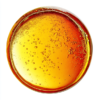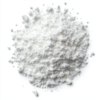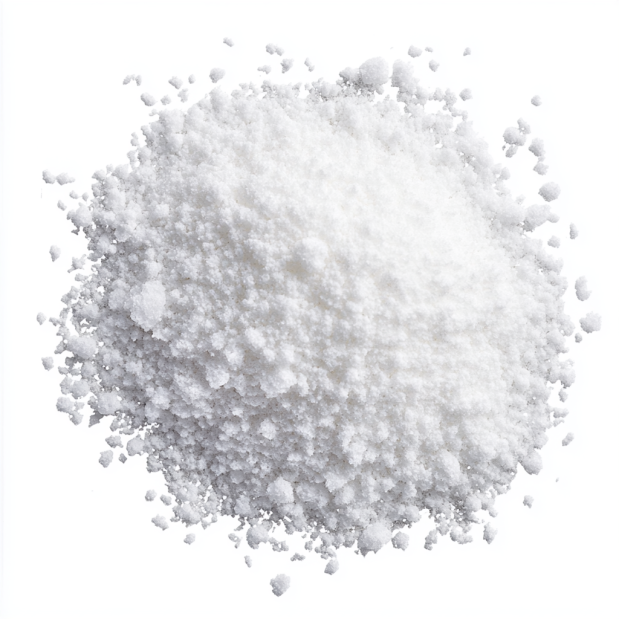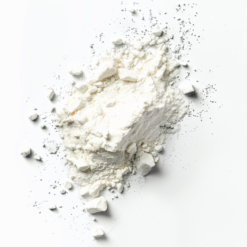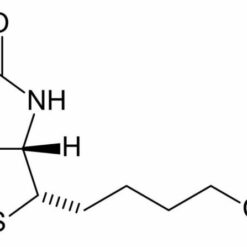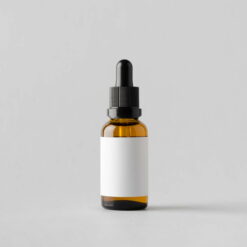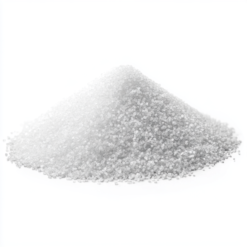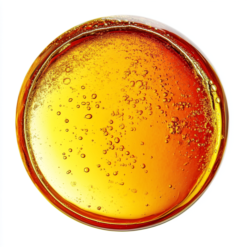The use of vitamin B3 in cosmetics
Niacinamide, is a small-molecule water-soluble vitamin. It is readily used in cosmetics because of its stability – it retains its properties over a wide pH range and is resistant to light and heat. It is also a multifunctional ingredient that helps improve skin tone and condition. Niacinamide acts as a moisturizer, increases skin elasticity and exhibits anti-inflammatory properties, making it valued in the care of a variety of skin types. Niacinamide has antioxidant properties, which has been confirmed by numerous scientific studies. Regular use of preparations with niacinamide at a concentration of 4-5% reduces fine lines and wrinkles. In a study conducted by Kawada’s team (2008), eight-week use of a cream with 4% niacinamide content contributed to a significant improvement in the appearance of the skin and reduction of wrinkles around the eyes. Niacinamide not only has an anti-wrinkle effect due to its antioxidant properties, but also stimulates the production of elastic fibers. It improves skin elasticity by promoting collagen synthesis in dermal fibroblasts and stimulating differentiation markers in normal epidermal cells. The acceleration of the epidermal cell cycle is believed to act as a mild exfoliant, making the skin firmer and wrinkles less visible. Trehalose, a disaccharide often used in cosmetics, works synergistically with nicotinamide to promote the processes of moisturizing and protecting the skin from external factors
Acne therapy with niacinamide
Thanks to its anti-inflammatory properties, vitamin B3 is an effective ingredient in the treatment of acne. In response to problems with side effects and increasing antibiotic resistance, safe and effective alternatives are being sought. Niacinamide, has shown potent effects that can support acne therapy. As can be read in a 2017 review article by Franciszka M. Walocko and colleagues, six out of eight studies that used topical vitamin B3 led to a significant reduction in acne compared to baseline or standard acne treatment. In addition, studies that used an oral supplement containing nicotinamide also showed a significant reduction in acne. Vitamin B3 helps to reduce inflammation and reduce the number of skin blemishes, making it a valuable part of acne skin care. It helps relieve symptoms such as redness and swelling, which is especially beneficial for those with inflammatory acne. In addition to its anti-inflammatory effects, topical application of niacinamide supports epidermal barrier function. Stabilizing this barrier is key, as it reduces transepidermal water loss and improves hydration of the skin’s stratum corneum. This, in turn, helps prevent the recurrence of lesions and maintains the healthy appearance of the skin, which is important in long-term acne therapy.
Skin brightening and hyperpigmentation reduction
Vitamin B3 is valued for its brightening properties, which help reduce hyperpigmentation and age spots, helping to even out skin tone. Uneven skin pigmentation is one of the main signs of external aging, which increases the need for cosmetics with brightening properties. A study by Bissett and colleagues (2006) showed that regular use of niacinamide can significantly reduce the appearance of hyperpigmentation, giving the skin a uniform and healthy appearance. Niacinamide, thanks to its antioxidant properties, effectively inhibits oxidative processes such as protein oxidation and glycation. Advanced glycation products (AGEs), can affect skin aging, leading to yellow discoloration, among other things. Acting as an antioxidant, this vitamin can protect the skin from yellowing and other adverse effects of skin aging.
Strengthening the skin barrier
Products with vitamin B3 help strengthen the skin barrier, which increases skin hydration and protects it from harmful external factors. Niacinamide reduces transepidermal water loss (TEWL), which is essential for keeping the skin hydrated. Studies show that regular use of cosmetics with niacinamide can improve skin barrier function and increase its resistance to environmental factors(Mohammed et al., 2013).
Reduce sebum production
Niacinamide is also effective in regulating sebum production, which is particularly beneficial for people with oily skin and a tendency to acne. Studies have shown that the use of niacinamide at a concentration of 2% can significantly reduce sebum secretion, helping to improve skin condition(Draelos et al., 2006).
Vitamin B3 in supplementation
Niacinamide is often used in dietary supplements, available in tablet or capsule form. It is often included in the formulation of vitamin complexes that are designed to enhance beauty by supporting the health of the skin, hair and nails. As an ingredient in these preparations, niacinamide helps moisturize the skin, strengthens the protective barrier and reduces inflammation and excessive sebum production. This vitamin plays an important role in the proper functioning of the nervous system and metabolic processes. As a precursor of NAD+, it is crucial for redox reactions and energy production in cells, which is essential for metabolism. It also acts as a neuroprotective agent, promoting the development and survival of neurons and protecting them from damage associated with ischemia and other factors. Studies indicate its potential in protecting against neurodegenerative diseases such as Alzheimer’s, Parkinson’s and Huntington’s. Vitamin B3 supplementation is especially recommended for people with vitamin B3 deficiencies, which can manifest themselves with a variety of skin problems, body weakness and other symptoms of pelagia. Regular use of niacinamide can prevent vitamin deficiencies and promote overall health and beauty.
AUTHOR OF THE ARTICLE:
Katarzyna Kopycinska


